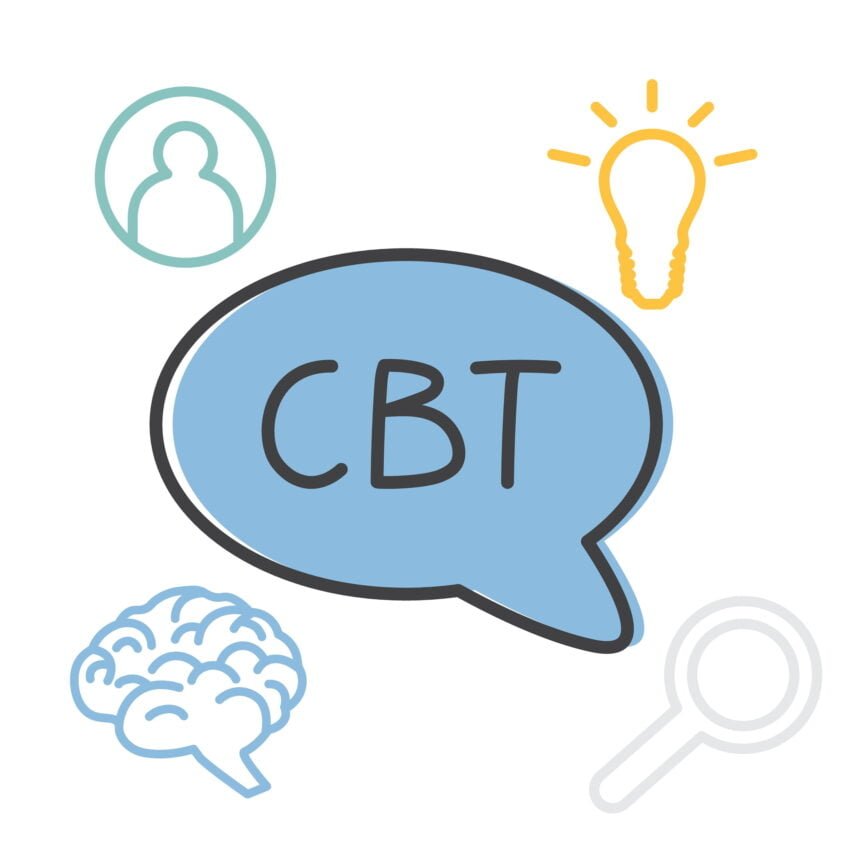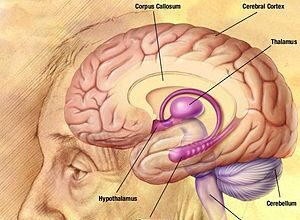Cognitive behavioral therapy (CBT) is a brief treatment that helps patients alter their mental processes to change how they behave. The foundation of CBT is the idea that how people perceive and process life events impacts their behavior and emotions.
According to a meta-analysis by Daniel David et. al., cognitive behavior therapy is considered the gold standard for treating various mental health conditions. David and his colleagues found that 54% of studies met the stringent criteria to demonstrate the effectiveness of this mental health treatment and almost all of them showed great results.
The main goal of therapy sessions is to explore and create strategies for handling daily problems and behaviors. Bipolar illness, anxiety disorders, and depression, several other disorders of mental health can all be successfully treated with this kind of therapy.
You can provide Cognitive Behavioral therapy in a group or in one-on-one sessions with a qualified therapist for cognitive behavioral disorders. CBT therapy recognizes that since thoughts, feelings, and actions are interrelated, changing one will affect changing the other two.
According to the American Psychological Association, the main objective of CBT sessions is to provide participants with the information and abilities needed to proactively recognize, resist, and change harmful or dysfunctional attitudes and behaviors. Cognitive behavioral therapists typically use a more structured method and urge their clients to apply what they have learned by demonstrating particular CBT techniques and concepts to them during sessions.
What Is Anxiety?
Anxiety is the most common mental health illness. And mostly, one-third of the population of the United States suffers from Anxiety.
No fast remedy exists for Anxiety. Counseling can also assist you in overcoming Anxiety, even if drugs are an occasionally essential component of an effective treatment strategy. It might help you identify your Anxiety’s primary causes and possible solutions. As per the research, Cognitive behavioral therapy is one of the effective treatments to deal with Anxiety. The CBT treatment sessions are primarily 5-20 sessions.
Let’s understand in detail, How CBT will treat your Anxiety?
By assisting individuals in altering their thoughts and behaviors when they feel worried, CBT treats Anxiety. CBT seeks to lessen avoidant actions while helping individuals interrupt and change the anxious thoughts that fuel Anxiety.
These adjustments work in concert to diminish the effects of Anxiety on a person’s everyday life without the need for medications. If you are looking out for the best anxiety treatment, then counselling Edmonton will treat you with their advanced approach.
CBT Reduces Patterns of Worrying Thoughts
Cognitive Behavioral therapy helps you reduce your negative thoughts. According to cognitive behavioral therapy (CBT), anxiety-inducing thoughts are referred to as “thought illusions” or “repetitive negative thoughts.”
These include pessimistic “terrible situation” or “what if…” ideas, which many individuals dwell on when they feel nervous, as well as other unfavorable perceptions of oneself or one’s life. With the use of CBT techniques, it is essential to halt negative ideas and replace them with more empowering ones that lessen Anxiety.
The therapy will help you look for more positive aspects of your thoughts, letting you work in a less worrying state. The treatment will keep you in the present by training you so that you can be attentive in the present scenario. Thus, you will avoid imagining your future.
CBT Diminishes Anxiety-Provoking Behavioral traits
In addition, CBT therapists assist clients in recognizing behavioral traits that may be the root of their issues or exacerbate them. Problematic habits are discovered by examining the immediate and longer-term effects of a particular activity. Problem behaviors frequently have the opposite effect: they temporarily lessen Anxiety, but over time, they worsen it and have other undesirable side effects.
Indicators of problematic conduct in persons with anxiety disorders involve the feeling of avoidance, their control behaviors, and distractions.
In addition to teaching anxious patients’ relaxation techniques, CBT frequently employs exposure treatment to assist them in facing their concerns progressively. A CBT therapist may advise patients to make minor scheduling or regular changes as an exposure treatment.
This might gradually increase their self-assurance in their capacity to shift with time. Instead of distracting them, CBT educates them on other strategies that you may employ, such as how to confront, interrupt, and replace anxious ideas with more calming ones.
Therapy vs. Medication for Anxiety Disorders
Anxiety disorders are pervasive in the United States and can be treated with therapy or medication. There is a lot of debate about which one is better for Anxiety.
Medication for anxiety disorders can have side effects that range from mild to severe. Some side effects include fatigue, trouble sleeping, and weight gain. Therapy often positively affects people with anxiety disorders, but it can take time to work.
There is no perfect solution for anxiety disorders, but treatment should always be aimed at reducing symptoms of Anxiety and the frequency of their occurrence. If you or someone you know is struggling with an anxiety disorder, please contact your doctor for help.
An inappropriate social anxiety disorder may be associated with a wide range of fears and concerns about how one is viewed by others, such as performance fears, social avoidance, non-existent confidants, or fear of being judged.
For example, an individual with social phobia who attends a party would suffer significant distress if they are worried that their appearance will not meet the social standards of the party. Social anxiety disorder is commonly associated with increased fear of being judged by others.
Individuals with social deficits often worry about what other people will think about them, what they might be doing wrong, or how they appear to others, making them feel uncomfortable or inadequate.
Shift Counselling Edmonton is here to help you with Anxiety
We use specific elements of the most cutting-edge, well-researched, scientific approaches to therapy, put them in the most effective order, and boost results with Shift innovations. Our counseling experience re-calibrates your cognitive perspective and subconscious reactions, so you can crush life’s challenges, be more in control of your relationships, reactions, and confidence and consistently approach your goals. Your work with us shows up in all areas of life because we train core mental fitness.








